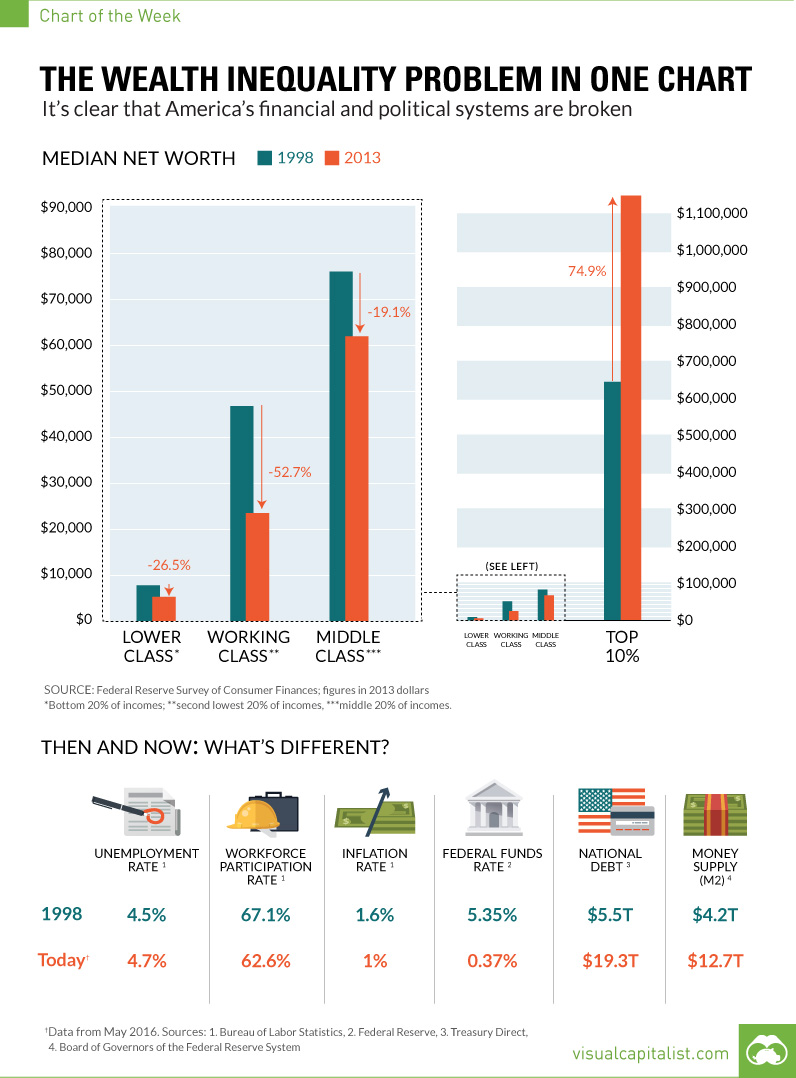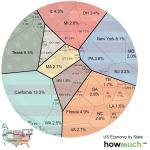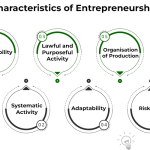Wealth inequality has become a pressing topic in today’s global discourse, highlighting the stark contrasts in wealth distribution across societies. As the rich continue to amass extreme wealth, often surpassing the fortunes of entire nations, the questions arise: how does this affect philanthropy efforts, and is income redistribution a viable solution? The presence of billionaires, while sometimes associated with significant philanthropic contributions, also raises concerns about their impact on social structures and the environment. Advocates for change argue that the concentration of wealth among the super-rich exacerbates systemic inequalities and suggests that a fairer wealth distribution is necessary for a just society. The compelling debate surrounding these issues, including the role of billionaires and the necessity of reform, reflects a critical examination of our values and the sustainability of our economic systems in the face of growing disparities.
Economic disparity, often described in terms like income stratification or financial inequality, sheds light on the complex dynamics between the affluent and the underprivileged. The ongoing discourse around the vast differences in financial resource allocation has highlighted the roles played by the higher echelons of society, particularly billionaires and their philanthropic efforts. This discussion touches on the potential for income restructuring to create a more equitable future, as well as the societal consequences tied to the wealth accumulation of the elite. Additionally, the scrutiny of how resources are distributed prompts a critical look at the responsibilities of the wealthy within our societal constructs. Overall, understanding these nuances is vital as we navigate the ethical landscape of wealth management and its broader implications.
Understanding Wealth Inequality
Wealth inequality represents a pronounced gap between the richest members of society and those who are less fortunate. This disparity is often exacerbated by systemic factors, such as unequal access to education and job opportunities, affecting income distribution across different demographics. In economic terms, this inequality can have profound implications, making it crucial to understand its origins and its social ramifications. Many argue that when wealth is concentrated in the hands of a few, it hinders overall economic growth and leads to societal discontent.
The discussion of wealth inequality frequently raises questions about the role of billionaires in society. Are they merely benefactors of philanthropy, or do they perpetuate a system that favors the wealthy? The rhetoric surrounding wealth inequality often highlights the responsibility of the affluent to support initiatives that benefit the broader community. Advocates for income redistribution argue that billionaires should leverage their resources to address systemic issues, such as poverty and climate change, thereby reducing the stark contrasts in wealth distribution.
The Impact of Billionaires and Philanthropy
Billionaires wield significant power through their wealth, often directing funds to various philanthropic efforts designed to combat pressing social issues. Their contributions to sectors such as education, healthcare, and environmental sustainability can result in positive outcomes, but this influence also raises ethical questions about their motivations and the potential for unintended consequences. For instance, while philanthropic initiatives can bring about immediate relief, they may inadvertently allow governments to shy away from their responsibilities in addressing social equity.
Additionally, the methods through which billionaires choose to allocate resources can reflect personal biases or interests, potentially skewing the overall impact of their philanthropy. This has prompted critics to question whether billionaire philanthropy can truly replace comprehensive governmental policies aimed at income redistribution. As billionaires like Bill Gates and Elon Musk continue to invest in initiatives geared towards societal improvement, the debate over their influence and accountability remains ever-present.
From the lens of ethical business practices, the actions of billionaires are often scrutinized. While the funding of anti-poverty initiatives is commendable, there are concerns surrounding the systemic issues that allow wealth to become concentrated. The argument posits that billionaire philanthropy may serve as a band-aid solution, addressing symptoms rather than the root causes of socio-economic disparity. Therefore, discussions about the efficacy and morality of billionaire philanthropy are becoming increasingly relevant in frameworks advocating for sustainable and equitable growth.
Income Redistribution as a Means to Address Inequality
Income redistribution serves as a significant topic in discussions on economic inequality and social justice. Advocates argue that redistributing wealth—from the wealthy to the lower economic classes—can alleviate the burden of poverty and promote a more equitable society. Supporters of income redistribution posit that it can cultivate a more balanced economic landscape, where access to resources and opportunities is more evenly distributed, thus fostering social mobility.
Critics of income redistribution, however, caution against potential pitfalls, arguing that it could disincentivize innovation and economic growth. The debate centers on finding a middle ground that encourages investment while ensuring that basic needs are met for the less fortunate. In this dialogue, it becomes imperative to explore different models of income redistribution, including progressive taxation policies, universal basic income, or enhanced social welfare programs as tools to balance the scales of wealth inequality.
The Role of Market Forces in Wealth Distribution
Market forces play a pivotal role in wealth distribution, often affecting how wealth is created and shared within society. The capitalist framework encourages competition and innovation, which can lead to substantial wealth creation. However, this system can also generate significant disparities in how wealth is accumulated and distributed. As the economy evolves, the discussion focuses on how effectively market outcomes reflect societal values and needs, with an increasing emphasis on ethical consumerism and corporate responsibility.
Moreover, it is crucial to evaluate the extent to which market mechanisms can serve to rectify or further exacerbate wealth disparities. In some cases, reliance on market forces has resulted in greater inequities, particularly as access to capital and opportunities remains uneven. Therefore, engaging in this dialogue leads to a reexamination of the compatibility of free-market capitalism with the pursuit of social equity—encouraging a reconsideration of how we view the intersection of wealth creation and wealth distribution.
Billionaire Responsibility and Social Justice
As the wealthiest individuals wield increasing power in societal narratives, there’s a growing discourse on their responsibilities toward social justice. Questions about billionaire accountability challenge the notion of wealth accumulated through meritocracy and highlight the systemic advantages that allow for such substantial financial gain. The ethical implications of wealth concentration evoke vigorous debate surrounding the actions billionaires should take to address societal disparities.
This conversation often intersects with the realms of philanthropy and investment. Should billionaires use their resources solely to drive profits, or should they also prioritize social good? The push for corporate responsibility has led many billionaires to invest in socially conscious ventures, seeking to balance their business objectives with broader societal benefits. Ultimately, empowering billionaires to recognize their social responsibilities may hold the key to navigating the complex landscape of wealth inequality.
Green Energy Reform and Wealthy Investors
The climate crisis has galvanized a growing interest in green energy reform, leading numerous wealthy investors to channel funds into sustainable technologies. While initiatives from billionaires may drive substantial advancements in green practices, they also raise critical discussions about the overarching impact of their investments. The dichotomy of actively combating climate change while simultaneously perpetuating wealth inequality fuels debate around the motives and ramifications of billionaire-led green initiatives.
Moreover, investing in green energy provides an opportunity to address both environmental and social issues, prompting discussions about the intersectionality between wealth and responsible investment. Advocates for green initiatives contend that funding sustainable ventures not only drastically reduces carbon emissions but also creates jobs and stimulates local economies, positioning billionaires as pivotal actors in combating climate change. As we explore the role of affluent individuals in shaping a sustainable future, the dialogue emphasizes the necessity of responsible investment to support both environmental protection and equitable growth.
Ethical Considerations in Economic Policies
The ethical considerations in economic policies extend beyond mere fiscal impact, delving into the philosophies that underpin our societal structures. Policymakers face pressures to ensure that economic frameworks promote fairness and equity, particularly when addressing issues like income inequality and wealth distribution. The discourse invites us to scrutinize policies that benefit the affluent at the expense of marginalized groups, prompting critical reflections on justice and morality within our economic systems.
Furthermore, discussions surrounding ethical economics draw attention to the need for transparent practices that hold corporations and wealthy individuals accountable. Policies centered on corporate social responsibility encourage businesses to recognize their ethical obligations beyond profit-making. As we consider how economic policies can be structured to reflect societal values, it becomes paramount to advocate for practices that prioritize the welfare of all citizens, rather than solely focusing on wealth generation.
The Future of Wealth and Its Distribution
Looking ahead, the future of wealth distribution stands at a crossroads, facilitated by evolving technologies and shifting societal norms. As the rise of billionaires continues, it prompts an urgent reevaluation of our economic systems, questioning whether they adequately produce equitable outcomes. This future hinges upon our collective ability to address the complexities surrounding wealth creation and consumption in a rapidly changing world, balancing innovation with social justice.
The advent of new technologies presents opportunities to reshape wealth distribution; however, it also poses risks of exacerbating existing inequalities. The role of policy in guiding these transformations will be crucial as we strive for an equitable future. Fostering dialogues that prioritize accessibility and opportunity for marginalized communities becomes essential, ensuring that the trajectory of wealth distribution aligns with broader societal goals of justice and sustainability.
Frequently Asked Questions
How does wealth inequality impact economic stability?
Wealth inequality can lead to economic instability by concentrating resources in a small segment of the population, resulting in less spending and investment from the majority. This imbalance can result in under-consumption and hinder overall economic growth.
What is the relationship between extreme wealth and environmental sustainability?
Extreme wealth often correlates with higher carbon emissions, as the wealthiest individuals consume disproportionately more resources. This raises critical questions about environmental sustainability and the need for wealth redistribution strategies that prioritize green technology.
How do billionaires influence philanthropy and social change?
Billionaires often wield significant influence over philanthropy, directing vast sums to anti-poverty initiatives and social change. However, this can lead to tensions between their interests and the broader public need for systemic change in wealth distribution.
Can income redistribution effectively reduce wealth inequality?
Income redistribution can potentially reduce wealth inequality by reallocating resources to the lower-income population. However, successful models require effective governance, transparent policies, and a commitment to fair wealth distribution practices.
What role do billionaires play in income inequality narratives?
Billionaires are often at the center of income inequality discussions due to their vast wealth and influence. Their investment choices, philanthropic efforts, and the social responsibilities they take on can spark debates about whether they are a cause or solution to income inequality.
How can policies aimed at wealth distribution improve societal outcomes?
Policies that focus on wealth distribution, such as progressive taxation and enhanced social services, can improve quality of life by investing in healthcare, education, and social safety nets, thereby narrowing the wealth gap and promoting economic equality.
What arguments exist against the existence of billionaires in a fair society?
Critics argue that billionaires contribute to systemic wealth inequality, as their accumulation of wealth often comes at the expense of the broader population. They contend that wealth should be redistributed to ensure basic needs are met and the democratic process remains intact.
How does the current economic system support wealth inequality?
The current capitalist system often supports wealth inequality by allowing wealth accumulation without equitable distribution. Market mechanisms can favor those with existing capital, perpetuating a cycle of inequality unless addressed through reforms.
What alternatives to billionaires exist for financing social initiatives?
Alternatives to billionaire philanthropy for financing social initiatives could include public funding, community-driven funds, cooperative ownership models, and increased government investment in public goods and social programs.
Why is understanding wealth distribution important in addressing poverty?
Understanding wealth distribution is crucial in addressing poverty as it highlights the systemic issues that contribute to economic disparity. By recognizing the distribution patterns, we can implement policies that more effectively target and alleviate poverty.
| Panelist | Main Argument | Counterpoint |
|---|---|---|
| Tom Malleson | Billionaires emit excessive carbon; we need to redistribute wealth. | Billionaires like Gates invest in poor countries. |
| Jessica Flanigan | Billionaires provide jobs and improve clean energy. | Not all billionaires act for overall good; they can perpetuate power imbalances. |
| Shruti Rajagopalan | Many billionaires earned their wealth through hard work. | Wealth is also due to luck; systems may favor certain abilities. |
| Nien-hê Hsieh | Trillionaires can be just in a properly structured society. | Current systems fail to meet basic needs and ensure equality. |
| Christopher Robichaud | Questions the justice of wealth concentration. | Requires a review of societal structures. |
Summary
Wealth inequality continues to be a pressing issue as discussions on the benefits and detriments of extreme wealth unfold. The recent debate hosted by the Edmond and Lily Safra Center for Ethics highlighted conflicting perspectives on the role of billionaires in society. While some argue that their wealth can contribute positively through philanthropy and job creation, others emphasize the environmental and social costs associated with such concentration of power. Addressing wealth inequality necessitates comprehensive policy approaches that encompass ethical considerations, economic structures, and effective redistribution strategies.







